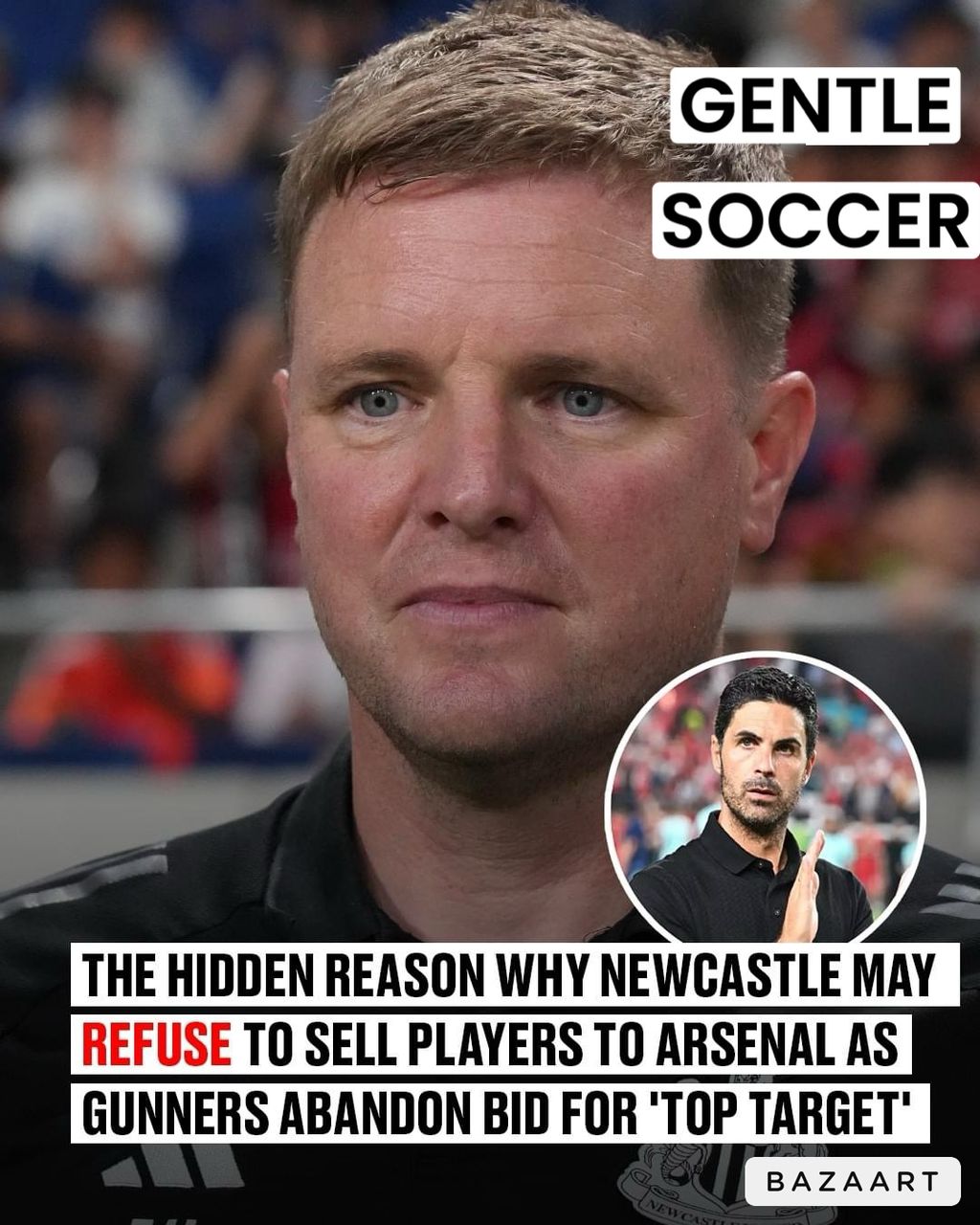Real reason behind Newcastle decisions on not doing business with Arsenal revealed
Newcastle United’s decision to possibly refuse player sales to Arsenal has led the Gunners to abandon their pursuit of a top target, highlighting a growing rift between the two clubs and impacting Arsenal’s strategic plans for the summer transfer window.
After narrowly missing out on the Premier League title to Manchester City last season, Arsenal is determined to bolster their squad during the summer transfer window. Under the leadership of Mikel Arteta, they have already secured the signing of Italian defender Riccardo Calafiori from Bologna for £42 million and are actively negotiating with Real Sociedad for midfielder Mikel Merino.
Arsenal’s transfer budget has been bolstered by a £27 million profit from the sale of academy graduate Emile Smith-Rowe to Fulham. Additionally, with the potential departure of Eddie Nketiah, there should be ample funds available to pursue a new striker. The Gunners are eager to reinforce their attacking line after struggling to find consistent goal-scoring form last season. Arteta, recognizing the need for a prolific striker to complement his tactical setup, has been eyeing several top talents to fill this critical role.
Among the several targets identified months ago, Newcastle’s Alexander Isak was a top priority. Arteta is particularly keen on enhancing his attacking options, as neither Gabriel Jesus nor Kai Havertz fully met expectations up front last season. However, Arsenal’s interest in the 24-year-old striker has been shelved due to Newcastle’s reluctance to engage in any business with them.
According to Miguel Delaney, chief football writer at The Independent, there has been a strain between the hierarchies of both clubs. This tension stems from Arsenal’s stance towards state-owned clubs. Several Arsenal executives have been at the forefront of efforts within the Premier League to limit the financial influence of Abu Dhabi-owned Manchester City and Saudi Arabian-owned Newcastle.
This stance has resulted in a frosty relationship at the boardroom level, complicating any potential transfer negotiations. Reports from The Independent in May indicated that Arsenal was unwilling to be drawn into a prolonged saga over Isak and would look elsewhere if it became apparent that Newcastle was uncooperative. Consequently, Arteta is now exploring other options, including Sporting CP striker Viktor Gyokeres. Brentford’s Ivan Toney was also considered, but his £100 million asking price has halted any pursuit.
Arsenal’s summer transfer strategy highlights the complexities of modern football dealings, where financial power and political stances significantly influence club relationships and transfer decisions. The situation with Newcastle exemplifies how off-field dynamics can directly impact on-field ambitions. As Arsenal navigates these challenges, their ability to adapt and identify alternative targets will be crucial in their quest to strengthen the squad and compete at the highest level in the upcoming season.
Moreover, this development underscores the broader implications of financial politics in football. The reluctance of state-owned clubs to do business with Arsenal points to a growing trend where financial clout and governance models affect the traditional transfer market. For Arsenal, maintaining a competitive edge while upholding their principles may require innovative approaches and strategic flexibility in player acquisitions.
In summary, the refusal of Newcastle to sell players to Arsenal, driven by a clash of ideologies and financial philosophies, has forced the Gunners to abandon their pursuit of Alexander Isak and look for alternative options to bolster their attacking lineup. As Mikel Arteta and his team explore new possibilities, they must navigate a complex landscape where political and financial factors are increasingly intertwined with the sporting objectives of top football clubs.
